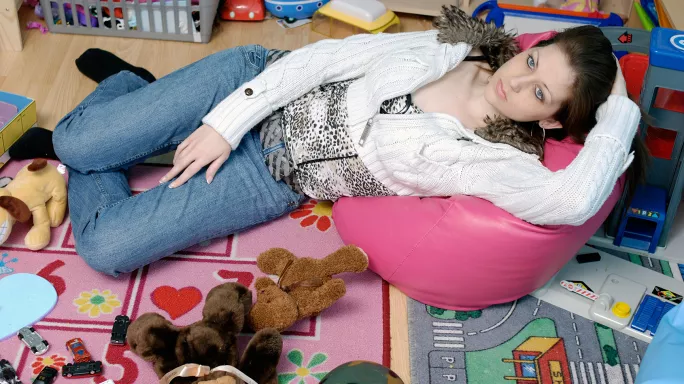- Home
- Postnatal depression: parents need better support in schools
Postnatal depression: parents need better support in schools

I started my PGCE in 2016 after I had completed my PhD. During this period, I fell pregnant and in 2017, I gave birth to a beautiful baby boy.
I didn’t realise, however, that something insidious was brewing behind the scenes.
I was very emotional and detached from my baby and my partner. Even though I had a beautiful three-month-old, I was much more concerned with work.
Quick read: Eight out of ten teachers suffering bullying, survey suggests
Quick listen: The truth about mental health in schools
Want to know more? The mental health pressures on teachers and pupils are ‘unsustainable’
I ignored these early warning signs of postnatal depression (PND) and carried on, even managing to get a job in a grammar school that I could “walk into” as soon as I completed my PGCE placements.
On the outside, everything was going well.
Then I started to deteriorate. I found I couldn’t focus. I went from being on top of everything to having no organisational skills whatsoever. I was growing increasingly agitated and anxious.
I used to be articulate but I started finding it difficult to string a sentence together. The brain fog was unbearable. I had no idea what was going on.

I completed my PGCE and started my new job, reassured that a fresh start in a grammar school would be good for me. Instead, I found myself worse than ever.
Two weeks into my NQT year, I had an induction meeting with my mentor who mentioned, perhaps not as diplomatically as he could have, that people can fail their NQT year and that would be the end of their teaching career.
He even shared a story about a student of his that he had failed recently.
The conversation sent my anxiety levels soaring. I became physically sick with worry that I might not pass the year, and found myself signed off work with “anxiety and low mood”.
One week turned into two, two weeks to three, and three weeks to six. It was only at this point that my therapist and GP proposed that PND was the cause.
Back to work
After several meetings with my union rep and head of school, I began a phased return to work, on the advice of my GP.
The head of school was supportive, and provided me with an occupational therapist. Everything seemed like it was going to be fine.
And then it all started to unravel.
Other members of staff seemed unsure of how to handle me; some would acknowledge me, but others just ignored me completely. I started to feel like I had done something wrong by being ill.
I felt detached from my department and the plans being made there. When I spoke to my head of department about the next academic year, I only received vague answers and uncertainty about whether I would still have a job.
I tried to take this in my stride, but I couldn’t take it anymore. My anxiety reached breaking point, and I had a relapse.
Friends and family finally convinced me to go on antidepressants. It was hard, and it took a lot to overcome the belief that doing so was admitting defeat.
I started taking them, but the side effects meant that I was signed off from work for another two weeks.
Bad to worse
On my return, things went from bad to worse. I was finally told that my contract would not be extended for the next academic year. And that’s where I am now: in recovery, with no job.
I want to end this with something positive and optimistic, but it’s hard.
According to the NHS, approximately 30 per cent of new mothers experience PND, and 58 per cent of those do not seek medical aid because they are unaware of the condition or they fear the consequences of reporting it.
I know my experiences are far from unique; many of us will find ourselves working in schools that think they are supportive of mental health issues but are not. Until we are all better educated about the effects of mental illness, things will not improve.
To those who are suffering, my advice is to remain true to yourself, be honest about your issues and don’t ignore the warning signs. Ask for the help that you need.
To school leaders, I urge you to learn how to make your workplace nurturing and supportive. Educate yourselves and your staff on mental health issues.
And remember that the recovery process can take months and sometimes years, so do whatever you can to support your staff through this difficult time.
Dr Dani Shalet is a secondary teacher. There is extensive advice about postnatal depression on the Mind website
Keep reading for just £1 per month
You've reached your limit of free articles this month. Subscribe for £1 per month for three months and get:
- Unlimited access to all Tes magazine content
- Exclusive subscriber-only stories
- Award-winning email newsletters